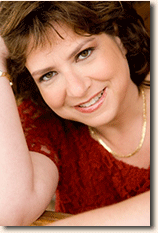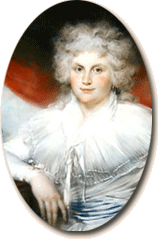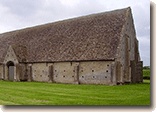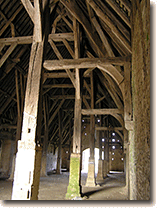|
Nancy Woodruff received her MFA from Columbia University where she won the Henfield/Transatlantic Review Award.
What compelled you to write this book? My Wife's Affair came at me from three different directions. First, I had this general idea of writing about infidelity—not from anything out of my own personal experience, more the opposite. Being a monogamous sort of person married to someone I had known since I was a teenager, I was always fascinated by the way so many novels treated adultery so lightly ("she took a lover, and ended it when she got bored," "she put up with his many affairs," that kind of thing). I felt an affair must be devastating to a marriage, and if there were children, to the family as well. I wanted to explore that in painstaking detail. I didn't know exactly where I was going with "this infidelity book" as I called it and then on a tour of Apsley House in London, I saw a portrait of Mrs Jordan and was lucky enough to have a wonderful tour guide tell me her story. I was immediately fascinated by Dora Jordan, a rags-to-riches actress who had risen from illegitimacy to become both the most famous comic actress of her time AND the mistress to one of the king's sons. I couldn't believe I had never heard of her before, and I read Claire Tomalin's excellent biography and began doing research at the British Library. I became obsessed with her story and suddenly I had the idea that my female character would be, too. I then knew that Georgie had to act the part of Dora Jordan. Finally, there was the tithe barn. My family and I had been in Bradford-upon-Avon and visited a beautiful tithe barn there. Again, I had no idea such things existed—the disadvantages of growing up in America!—and began dragging my family all over England to look at tithe barns. I was struck by the idea of this huge, empty stone barn as a metaphor for a marriage—something that was filled up with memories and experiences, of years and years of moments piling up—and wondered what happened to all these things when a marriage ended. Of course I had to have the barn do more than sit there being metaphorical, so I turned it into a theatre, the place where Georgie's affair with Piers truly begins. Did anything surprise you, or did anything surprising happen, during the course of writing the book? My first surprise was discovering that the book was to be narrated by Georgie's husband, who wasn't privy to every moment of Georgie's life but who had to recreate it based on information he had. Many tried to dissuade me from this difficult approach, but it was what I wanted to do—have Peter tell Georgie's story as a way of making it his own. Whenever I got discouraged, I thought of Nick Carraway in The Great Gatsby and remembered that such a thing could, in fact, be done. At some point I also discovered that I had to actually write the play that Georgie was performing, the one-woman show of Mrs Jordan's life. I had never written a play before and I kept hoping I would come across one already in existence. No such luck. The play took a very long time to research and write, and in the end so much of it didn't make it into the book. I did love all those days at the British Library doing research, poring over rare play manuscripts that Mrs Jordan herself might have used. What writer or writers have had the greatest influence on you? I was an undergraduate at the University of Iowa during the heyday of Raymond Carver and I would be lying if I said I didn't try to write like him for a time. At Iowa, writing was all about the sentences and I learned to slave over my prose, cutting out every extraneous word or punctuation mark, with "show, don't tell" and "less is more" pinned on my bulletin board. At Columbia, writing was about "the book" and this felt much freer to me. As for individual writers, there have been so many, coming at various crucial points in my life. I could pinpoint exactly when I read each writer and what he or she taught me, but there have been so many. Virginia Woolf is probably my greatest influence, and James Joyce. Also: the poems of Yeats, Eliot and Philip Larkin. These I return to again and again. Also Chekhov, whom I discovered relatively late in my life—around age 25. As a teenager, certainly I was affected by the Bronte Sisters, George Eliot, Thomas Hardy. Of contemporary writers, I think of Russell Banks, Lorrie Moore, Alice Munro, Stuart Dybek, Marilynne Robinson. I could go on and on. Why did you become a writer? Was it a lifelong goal? I have wanted to be a writer since I was eight years old. I was an only child and I read all the time—Marguerite Henry, Laura Ingalls Wilder, all the usual suspects. On Saturday mornings when other kids were watching cartoons, I would sometimes read 4, 5, 6 books before my parents woke up. Out of this love of reading grew a love of writing and to this day there is no greater pleasure than feeling that moment of peace when all the material fits into place—after months, or years—and I have done what I set out to do. What advice would you give to aspiring writers? I give advice to aspiring writers (my students) all the time, and I tell them that writing is like a very long apprenticeship. You have to read widely, write all the time, consider criticism, build a community of writers, and understand that success may not be immediate, or predictable, or sustained. You have to want to write because you can't imagine doing anything else. You have to write because of the deep pleasure and joy it brings you, understanding that the act of writing itself is possibly the greatest reward you will get. Enjoy it!
|
|||



 Dora Jordan
Dora Jordan
